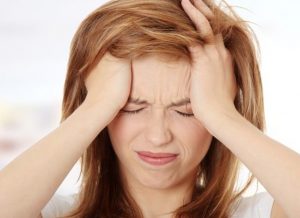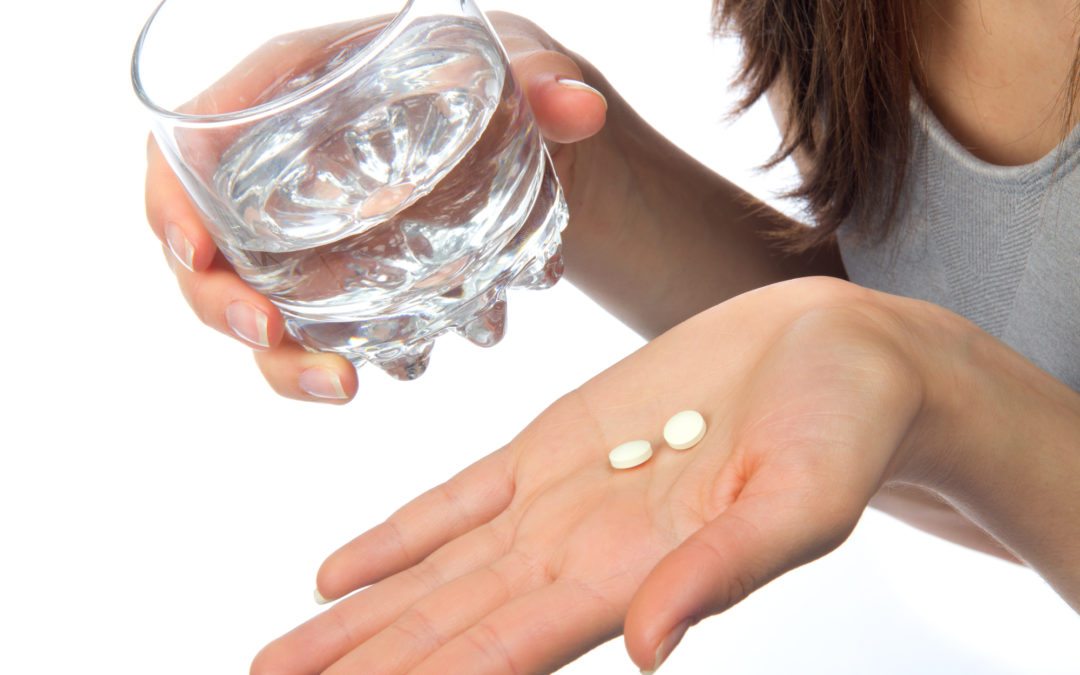Wait….What??
Sadly, it’s true: your headache remedy may be causing you more headaches.
Rebound headaches – also known as medication overuse headaches – occur when a person overuses certain medications used to treat headaches.
Overuse is defined as using a painkiller to treat a headache more than two or three times a week for three or more months. A 1999 study found that approximately 9% of women in the general population suffer from daily headaches and just under a third of these were overusing painkillers.
Characteristics of a rebound headache include:
- Headaches that occur more than 15 days in a month
- Are worse during periods when you are overusing painkillers
- Most common in people in their 30s and 40s and occur more often in women than men
- Those that already suffer from headache conditions are more susceptible
Culprits include common painkillers – like aspirin, acetaminophen, and to a lesser degree ibuprofen and naproxen – as well as many prescription medications such as opioids or those containing codeine.
Triptans, drugs commonly used to treat migraines, can also cause rebound headaches. In fact, triptans, such as Imitrex and Zomig, account for 42% of migraine treatment, and can cause rebound headaches when taken more than 10 days per month.
And if that wasn’t bad enough, rebound headaches can also be caused by overuse of caffeine present in medication or from your daily soda or coffee habit. Caffeine use of over 200mg per day might increase your risk. (For perspective, one cup of coffee contains around 95mg).
Why does this happen?
Your body gets used to a certain amount of medication when you use your treatment regularly. When the dose wears off, you suffer from symptoms of withdrawal – such as headaches. Most of us combat this headache with another dose of painkiller which just makes the situation worse in the long run. Long term use of medications also depletes the body of vitamins and minerals and can damage the liver and lining of the GI tract. NSAIDs reduce the production of cytokines, which results in a reduction of serotonin receptors in the brain, which may also play a role.
So What’s a Headache Sufferer to do?
If you suffer from rebound headaches, you aren’t alone. In fact, rebound headaches are the third most common cause of headaches behind migraines and tension-type headaches.
The good news: rebound headaches are treatable. The bad news: it’s likely to get worse before it gets better.
Discontinuing the overused medication is the only way to break the rebound headache cycle.

Unfortunately, this usually causes headaches to get worse initially. You may also suffer from other symptoms such as nausea, vomiting, insomnia, or restlessness.
Doesn’t sound like good news? Don’t worry – the headaches eventually will get better. Most sufferers see headaches return to their normal patterns within two months of stopping medication use. So if you are concerned that you may be experiencing rebound headaches it is worth talking to your doctor about getting out of the cycle before it gets worse.
How do You Decrease Your Risk of Rebound Headaches?
You can mitigate your risk for rebound headaches by avoiding the use of painkillers or triptans more than two times a week. Of course, this is easier said than done if your headaches are severe. I’ve been there. In the middle of a migraine is not the time to tackle this problem. You have to step back and take a bigger picture view of what is going on in your body to cause these migraines (this is what we do in phase 2 of the Migraine Freedom Plan: DIVE)
You could try working with your doctor to switch to another type of medication. However, this will involve some trial and error that may worsen symptoms.
Fortunately, all is not lost! There are many natural remedies, holistic treatments, and lifestyle changes that can help alleviate headache symptoms. These include:
- Acupuncture
- Biofeedback
- Certain herbs, vitamins, and minerals
- Exercise
- Ice or Heat
- Techniques to properly manage stress
- Healthy sleep and eating habits
- Identification of possible dietary triggers
Natural remedies can be the perfect solution to having fewer headaches and reducing the risk of developing rebound headaches. In truly chronic cases, your doctor may have prescribed a preventative medication and you’ll need to be sure to consult them before changing your use of these to avoid potentially dangerous withdrawal symptoms.
If you feel like you’ve exhausted all the typical migraine treatments and want to give natural remedies a try, download my e-book, “10 Natural Ways to Beat a Migraine Before it Starts”.
Are you a headache sufferer? We’d love to know what remedies you’re using to treat your headaches, and if you think they might be rebounding! Please share your wisdom below… we’re all listening 🙂




This is really helpful information, I didn’t know that the medicine could actually be causing more headaches! I’ve had some headaches recently but I don’t usually take meds for them, I just kinda let them die down. But I’m interested in finding more natural ways to cure them. Thanks for sharing the info!
Who knew?!?! You really broke this down in such a simple, digestible way, and I really appreciate the suggested list of natural remedies, holistic treatments, and lifestyle changes.
I take approximately 12 zolmitriptan 2.5 mg a month and I feel I am suffering rebound headaches. I have managed to go 4 weeks without taking any medication in an attempt to ‘break the cycle’ but there always seems to be some occasion that I need to be well & migraine free so I have to take more medication. I just can’t cope with the awful rebound headaches that are as bad as the migraine headaches. Can anybody please help? These headaches are ruling my life. I know the answer is to stop taking any zolmitriptan for around 3 months but this is too difficult.
Hi there, I can sympathize that simply cutting out medications may be too difficult to start there. Instead, most people find that starting to use several of the natural relief options and working on the root cause helps them just not need to take the prescriptions as often anymore. Individually the natural relief options usually won’t completely stop a migraine, but our clients report that layering them has been extremely effective. Check out our free Migraine Rescue Toolbox (migrainert.com) if you haven’t already and set up a Case Review if you need more individualized help.
Who Knew??? I had no idea about this, Erin! Thank you for sharing so many alternatives to popping a pill!
Its sad that many medications can actually cause issues! They tell you to take one drug, but keep in mind that it could cause **** or *****. I could go on and on about that. Anyway, great post Erin.
I never thought of this before!! I will certainly remember this when treating my headaches!! Thank you!!
This was really interesting. I’ve never heard of rebound headaches before.
I can proudly say that i have NEVER Taken a pill for a headache or any other ache and pain ion my life and as a result am ache and pain free.
Rest and hydration are basic solutions for hangover! That is the best cure for me!
It is crazy how they can be the cause of your issues. Headaches just need to go away!
I suffer from migraines but I had no idea about rebound headaches. I try to use the minimum amount of medication possible, and I’m glad I do.
This is exactly why I hate to become a pill popper. If the headache is manageable by other means, I would go that route than to take medication. Thank you for this informative post.
For me it was an operation that was needed to stop my headaches. I didn’t even know I needed one, thought it was all part of getting older. I’m so glad not to have them anymore. It’s life changing when you get debilitating headaches frequently.
I don’t have any idea of rebound headache but whenever I take a headache pill then I always frightened that this pill may harm me more. Thankfully I have not a migraine. My headache is normally happening for excessive work. But I will remind about this rebound headache and try not to happen with me. Thanks for this informative post.
This is highly informative. I always just immediately take medications whenever I have a headache. Your tips will help me take the away the pain so easy.
This is so useful. I am forever saying, if it can be avoided do not have the pills…this just goes to show how right that is xx